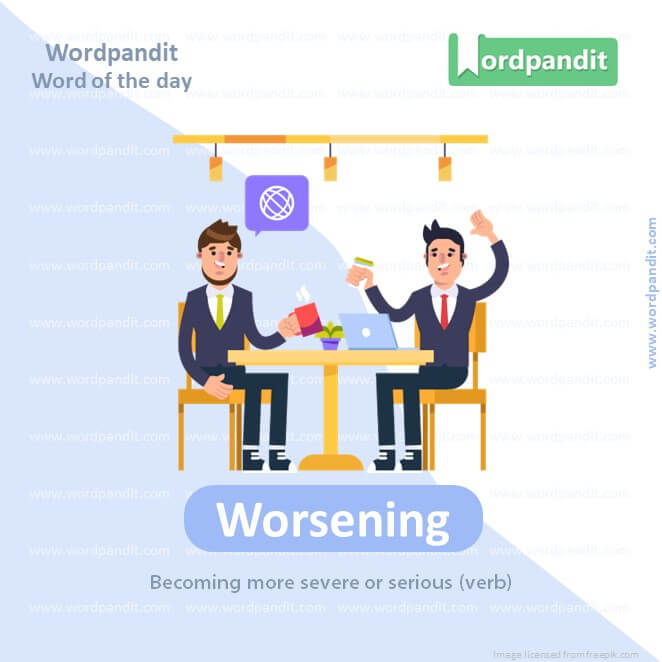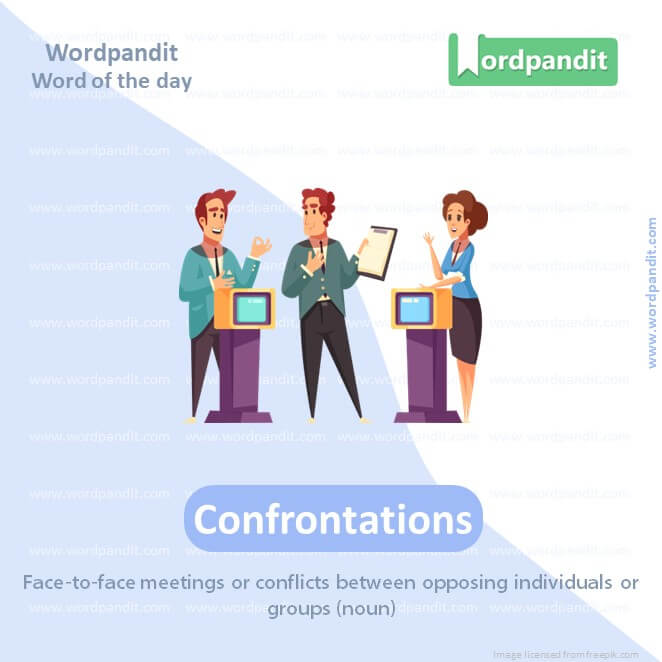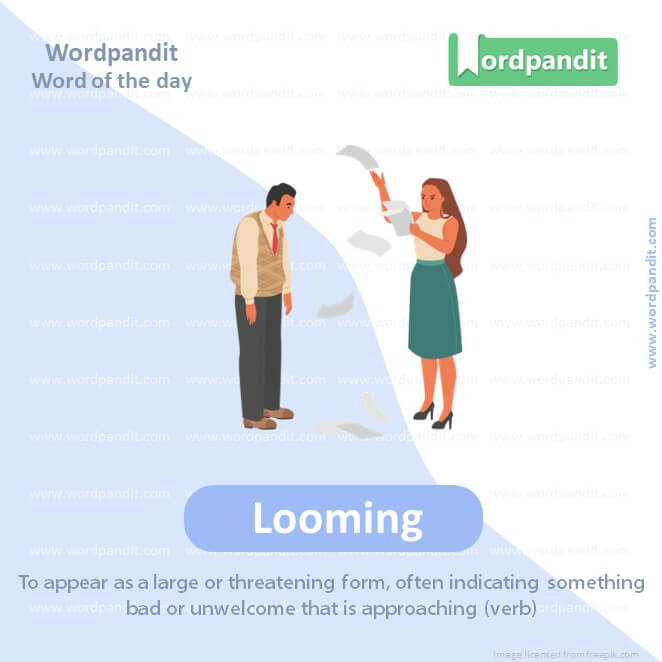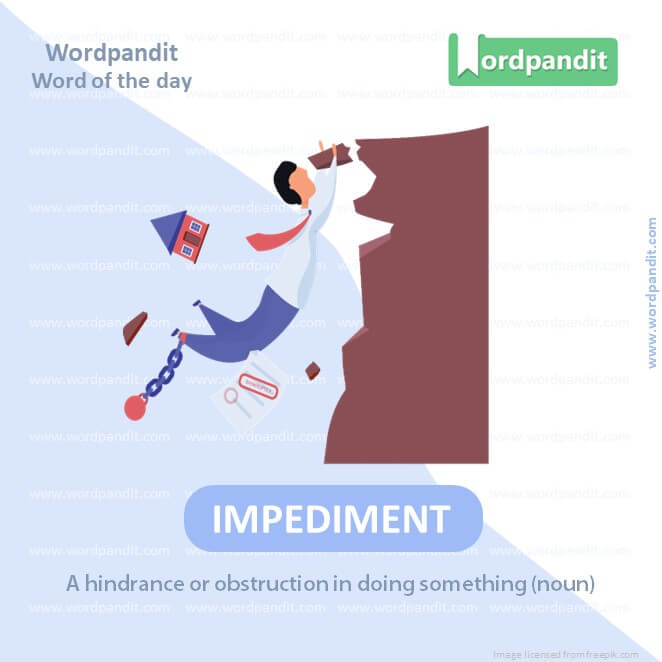Daily Vocabulary Words: List of Daily Used Words in Leading Indian Newspapers
Hi there. Welcome to this special section @ Wordpandit. Our endeavour here is straightforward: highlighting daily vocabulary words that you would come across in leading newspapers in the country. We have included the following newspapers in our selection:
• The Times of India
• The Economic Times
• Hindustan Times
• Mint
• Indian Express
We are putting in extensive work to develop your vocabulary. All you have to do is be regular with this section and check out this post daily. This is your repository of commonly used words; essentially, we are posting a list of daily used words. Hence, this has significant practical application as it teaches you words that are commonly used in leading publications mentioned above.
Visit the website daily to learn words from leading Indian newspapers.
WORD1: Energisation
CONTEXT: But a reenergisation of isolationism as the US’s preferred stand doesn’t really depend on the election’s outcome
SOURCE: Hindustan Times
EXPLANATORY PARAGRAPH: Energisation is like when you eat a healthy snack or take a quick nap, and suddenly you feel full of energy and ready to play and have fun.
MEANING: The process of giving energy or becoming energized (verb).
PRONUNCIATION: ENerjaizeyshun
SYNONYMS: Invigoration, stimulation, activation, revitalization, reinvigoration
USAGE EXAMPLES:
1. The morning exercise routine helps in the energization of the body.
2. The music at the party added to the energization of the atmosphere.
3. She felt a sense of energization after a good night’s sleep.
4. The energization of the crowd was evident as they cheered for their team.

WORD2: Sluggish
CONTEXT: The Abraham Accords, fairer North Atlantic Treaty Organization (NATO) costsharing, new and stronger security alliances in Asiabut two wars, a slowing China, a sluggish global economy, and the startlingly fast (and accelerating) development of Artificial Intelligence (AI) will make entirely new demands on his leadership.
SOURCE: Hindustan Times
EXPLANATORY PARAGRAPH: Sluggish is when you feel very tired or slow, like when you wake up in the morning and it takes a little while for your body to get moving.
MEANING: Lacking energy or moving slowly (adjective)
PRONUNCIATION: SLUHGish
SYNONYMS: Lethargic, slow, inactive, lazy, torpid
USAGE EXAMPLES:
1. The hot weather made everyone feel sluggish.
2. After a heavy meal, she felt sluggish and sleepy.
3. The computer was running sluggish due to low memory.
4. He had a sluggish start but picked up pace later in the race.
WORD3: Renegotiate
CONTEXT: The return of Robert Lighthizer, Trump’s hawkish trade czar, and a new push against US allies like Japan and South Korea to renegotiate trade and security terms with his administration.
SOURCE: Hindustan Times
EXPLANATORY PARAGRAPH: Renegotiate is like when you and your friend are playing a game, and you decide to change the rules a little bit to make it more fair or fun for both of you.
MEANING: To discuss and change the terms of an agreement or contract (verb).
PRONUNCIATION: reenuhGOHsheeeyt
SYNONYMS: Revise, modify, adjust, amend, alter
USAGE EXAMPLES:
1. The company wants to renegotiate the terms of the partnership.
2. They decided to renegotiate the rental agreement to include additional services.
3. After much discussion, they finally agreed to renegotiate the deal.
4. The union and management are planning to renegotiate the workers’ benefits.

WORD4: Worsening
CONTEXT: Or he could decide that China’s worsening longterm economic prospects demand a more conciliatory approach, presenting Trump with some notable policy victories.
SOURCE: Hindustan Times
EXPLANATORY PARAGRAPH: Worsening is when something starts to get even more difficult or not as good as it was before, like when a rainy day turns into a stormy day.
MEANING: Becoming more severe or serious (verb)
PRONUNCIATION: WURsuhning
SYNONYMS: Deteriorating, declining, deteriorated, worsening, aggravating
USAGE EXAMPLES:
1. The worsening weather conditions forced them to cancel the outdoor event.
2. There was a noticeable worsening of her health after the surgery.
3. The worsening economic situation led to job losses.
4. The worsening relations between the two countries raised concerns.
WORD5: Stabilising
CONTEXT: Trump might play a more stabilising role. The Abraham Accords, probably the biggest foreign policy achievement of his first term, normalised relations between Israel and some of its Arab neighbours, setting conditions for a more stable and prosperous region.
SOURCE: Hindustan Times
EXPLANATORY PARAGRAPH: Stabilising is like when you build a tower with blocks, and at first, it’s a bit wobbly, but then you add more blocks to make it steady and not fall over.
MEANING: Making something steady, stable, or balanced (adjective or noun).
PRONUNCIATION: STAYbuhlahyzing
SYNONYMS: Balancing, stabilizing, steadying, securing, firming
USAGE EXAMPLES:
1. The new policy aims at stabilizing the economy.
2. The medication helped in stabilizing her blood pressure.
3. The additional support beams were crucial for stabilizing the structure.
4. Stabilizing the political situation requires cooperation from all parties.

WORD6: Confrontation
CONTEXT: But Iran has no interest in a dangerous direct confrontation with either the US or Israel that it can’t win, particularly when a loss might create a crisis at home.
SOURCE: Hindustan Times
EXPLANATORY PARAGRAPH: Confrontation is when two people or groups have a disagreement and talk about it in a strong or intense way, like when you and your friend both want to play with the same toy.
MEANING: Face-to-face meetings or conflicts between opposing individuals or
groups (noun)
PRONUNCIATION: konfruhnTEYshuhn
SYNONYMS: Conflict, clash, altercation, disagreement, dispute
USAGE EXAMPLES:
1. The confrontation between the two countries led to increased tension.
2. He avoided a confrontation by staying calm and composed.
3. The confrontation with his boss resulted in his resignation.
4. A peaceful resolution is preferred over confrontation in such matters.
WORD7: Intrigued
CONTEXT: the only US president willing to bargain with him, and Trump remains intrigued by the continuing opportunity to cut the one deal he believes no other US president can getover the North Korean nuclear programme.
SOURCE: Hindustan Times
EXPLANATORY PARAGRAPH: Intrigued is when something catches your attention and makes you curious, like when you see a mystery book and want to know what happens in the story.
MEANING: Arousing curiosity or interest; fascinated (adjective).
PRONUNCIATION: inTREEGD
SYNONYMS: Interested, curious, fascinated, captivated, engrossed
USAGE EXAMPLES:
1. She was intrigued by the new technology and wanted to learn more.
2. His mysterious smile intrigued everyone at the party.
3. The intriguing plot of the movie kept the audience engaged.
4. The historical artifacts in the museum intrigued visitors from all over the world.

WORD8: Looming
CONTEXT: With the general elections looming, both the BJP and Congress are hoping to see these movementbased parties become embroiled in scandals.
SOURCE: Hindustan Times
EXPLANATORY PARAGRAPH: Looming is like when a big cloud covers the sky and looks like it might rain soon, making you prepare for the possibility of getting wet.
MEANING: To appear as a large or threatening form, often indicating something
bad or unwelcome that is approaching (verb)
PRONUNCIATION: LOOming
SYNONYMS: Imminent, approaching, impending, threatening, menacing
USAGE EXAMPLES:
1. The looming deadline made her work faster.
2. Dark clouds were looming over the horizon, signaling a storm.
3. The shadow of the giant tree was looming over the playground.
4. He felt the looming presence of danger as he explored the abandoned building.
WORD9: Proclaimed
CONTEXT: His comrades and he had then proclaimed they had nothing to do with electoral politics and were merely fighting for truth, fraternity, and justice.
SOURCE: Hindustan Times
EXPLANATORY PARAGRAPH: Proclaimed is when someone announces something loudly and proudly, like when a superhero declares their mission to save the day.
MEANING: To declare publicly, typically insistently, proudly, or
defiantly
PRONUNCIATION: prohKLEYMD
SYNONYMS: Announced, declared, stated, announced, announced
USAGE EXAMPLES:
1. The mayor proclaimed the day as a public holiday.
2. The king proclaimed his son as the heir to the throne.
3. She proclaimed her love for him in front of everyone at the party.
4. The president proclaimed the new policy during his speech.

WORD10: Impediment
CONTEXT: The Constitution is silent on this matter, but provisions in the jail manual will prove to be an impediment.
SOURCE: Hindustan Times
EXPLANATORY PARAGRAPH: An impediment is like when there’s something in your way that makes it hard for you to do what you want, like when a big rock blocks your path while you’re playing outside.
MEANING: A hindrance or obstruction in doing something (noun)
PRONUNCIATION: imPEDuhmuhnt
SYNONYMS: Obstacle, barrier, hindrance, obstruction, deterrent
USAGE EXAMPLES:
1. Lack of funding was the main impediment to the project’s success.
2. His fear of public speaking was a major impediment to his career advancement.
3. Traffic congestion is a significant impediment to commuting in the city.
4. Overcoming language barriers is an important step in removing impediments to global communication.
Vocabulary new Words
In the exuberant realm of language learning, nothing holds more thrill than the discovery of ‘vocabulary new words’. These gems of knowledge bring with them a fresh perspective and a deeper understanding of language. However, learning ‘vocabulary new words’ requires a methodical and focused approach.
The act of learning ‘vocabulary new words’ is a delve into linguistic novelty, often involving exposure to unfamiliar structures and meanings. Transcending the traditional approach of mere memorization helps in truly cementing newly learnt words into long-term memory. Interaction with a broad spectrum of written and spoken material, including novels, films, podcasts, and digital resources, provides a rich context of ‘vocabulary new words’ and significantly aids in their comprehension.
It’s noteworthy that unpacking ‘vocabulary new words’ is a steady process rather than a rushed one. A planned approach with a specific number of words, learned and reviewed each day, proves beneficial in effective learning. Coupling this method with technologies such as flashcards or memory-enhancement software can optimize the retention of ‘vocabulary new words’.
Integrating mnemonic devices and visual imagery is another highly efficient tool when learning ‘vocabulary new words’. Assigning unique stories or visuals to new words can enhance recall, making unfamiliar vocabulary much more approachable.
Lastly, practicing ‘vocabulary new words’ within daily routine is crucial for grasping their usage. Whether it’s through active utilization in conversation or incorporating these words in written communicative situations, application reinforces understanding.
In summation, mastering ‘vocabulary new words’ is an enriching pursuit that expands our linguistic horizons. However, a balanced approach, combining diverse reading materials, pacing your learning, employing memory-boosting strategies, and daily practice greatly streamlines the task. Embark on this fascinating journey, and let the ‘vocabulary new words’ fill your linguistic canvas with a fresh palette of expressions.













